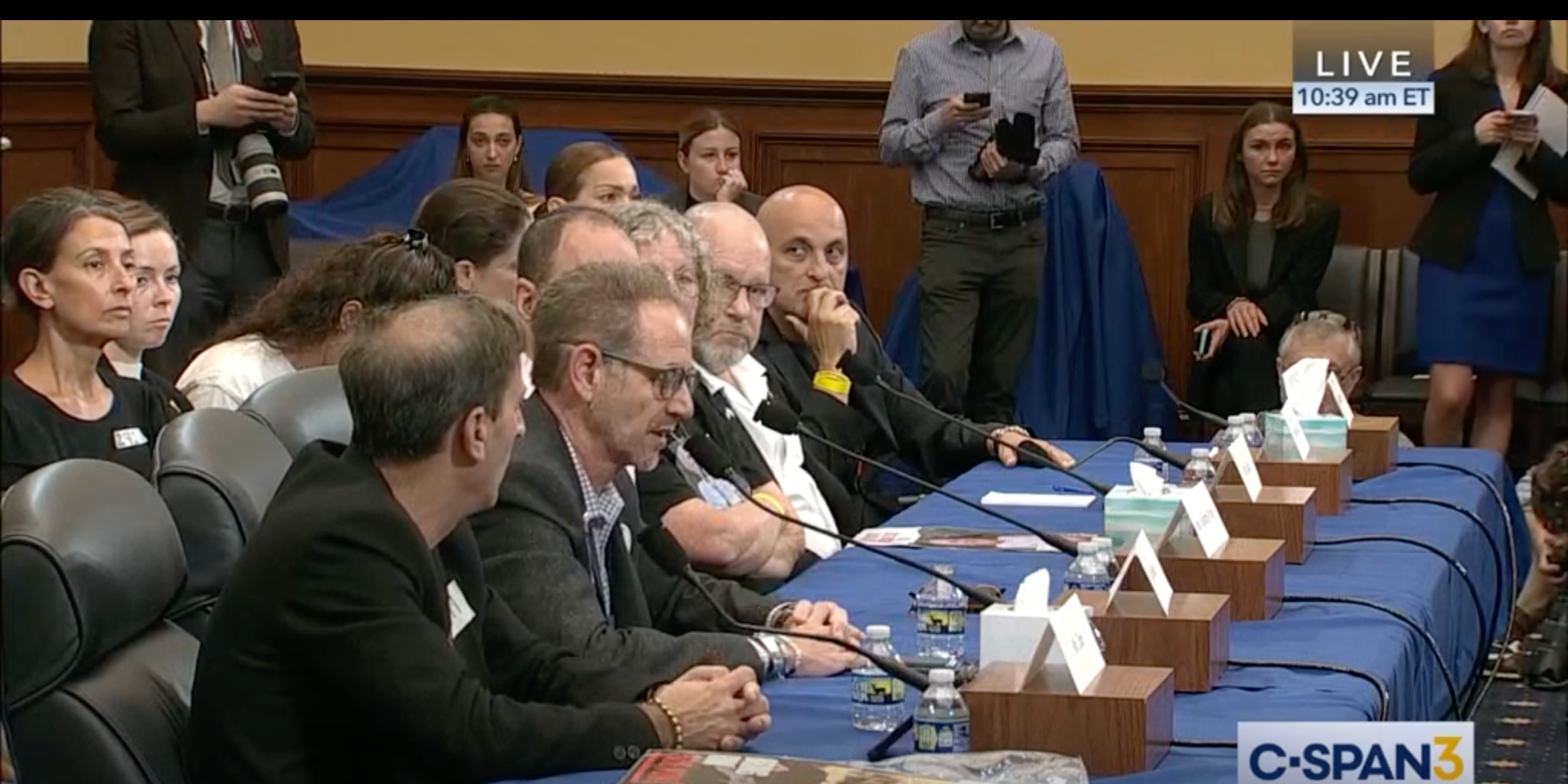The families of the eight American citizens still held hostage in Gaza blasted Israeli Prime Minister Benjamin Netanyahu on Tuesday for not striking a ceasefire deal that would free their family members, and urged members of Congress to pressure the Israeli leader on this front while he was here in town.
The family members were speaking at a roundtable at the House Foreign Affairs Committee in advance of Netanyahu’s speech to Congress on Wednesday.
Some of the hostages’ relatives are based in Israel and traveled to Washington with Netanyahu earlier this week. The group also included the parents of Itay Chen, who was killed on October 7 and whose body is being held by Hamas; and Aviva Siegel, who was released during the hostage deal in November, and whose husband remains in captivity.
“It is time now to end this war, to end our suffering, and along the way, to end the suffering of millions in Gaza,” said Jonathan Dekel-Chen, the father of one of the hostages, who lives in Israel but refused to travel with Netanyahu . “I implore Democrats and Republicans to do all that you can to let our Prime Minister know that the U.S. knows that the time is now.”
While the Biden administration has said that Israel has agreed to an “enduring” ceasefire plan, the families present accused Netanyahu of keeping the war going for political purposes and said he was not devoting enough energy to securing the hostage release.
“Last night, we met Prime Minister Netanyahu again. I have to say the urgency of the matter did not seem to resonate with him,” said Daniel Neutra, whose brother is being held hostage by Hamas.
“We had hoped that he would come to Washington to announce that he had sealed the deal to bring our kids home,” said Adi Alexander, father of Edan Alexander. “Anything short of it will be a total failure for us.”
“There’s a myth out there that there is a better deal somewhere if Israel just delays a little longer, fights a little further,” added Dekel-Chen.
Netanyahu has said that there will be no durable ceasefire until Hamas’ military and governing capabilities are destroyed.
But Dekel-Chen countered that “All of the Israeli security apparatus and intelligence services have clearly stated that conditions are right today to complete the deal that’s on the table. Any true friend of Israel today must pressure our Prime Minister to finish the deal now.” President Joe Biden has also said that Hamas is no longer capable of carrying out a large-scale attack on Israel.
He went on to say that there was no reason to believe continuing the military operation could free their loved ones.
“There is no proof of concept,“ Dekel-Chen said. “There is no military force on earth that knows how to get hostages out from under ground. Whatever has been tried has not been successful, it's been ten months.”
The witnesses also blamed Netanyahu for using other external threats from Hezbollah or Iran as a pretense for keeping the war going, instead of focusing on the more immediate issue of ending the war in Gaza.
“I am sure that Mr. Netanyahu is going to speak to the joint session tomorrow about the credible, real threats to the state of Israel,” said Jon Polin, father of Hersh Goldberg-Polin . “Now is not the time to go up to the cancer ward and deal with the sick people who need treatment, when there are people dying right now on the floor of your hospital. (...) The single event that can happen right now that can be most influential in releasing pressure across all fronts in the Middle East region is bring home to hostages.”
Some of the family members also noted that the recent news of Biden’s withdrawal from the 2024 election meant that he could focus on doing the right thing in the Middle East, divorced from U.S. domestic politics.
“Part of your legacy, Mr. President, is that you get the credit for saving the lives of as many of these hostages as possible and doing the thing that releases the most pressure in the region,” by pushing Netanyahu to agree to a ceasefire agreement, said Polin.
A report from shortly after the roundtable said that Biden would invite the families to his meeting with Netanyahu on Thursday.
- What exactly are US special forces doing in Israel? ›
- How to avoid a wider Mideast conflict ›
- Netanyahu lectures Americans, makes case for ‘total victory’ | Responsible Statecraft ›
- Have Americans held by Hamas become an afterthought? | Responsible Statecraft ›
















